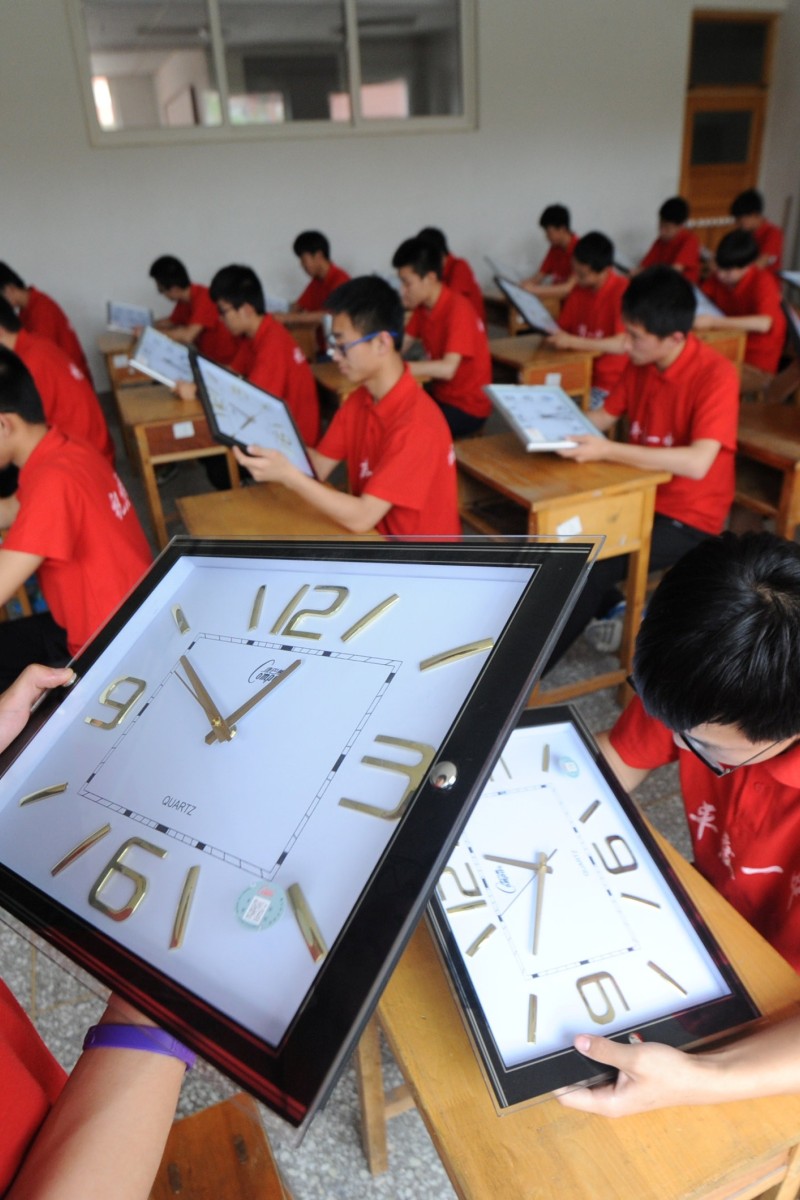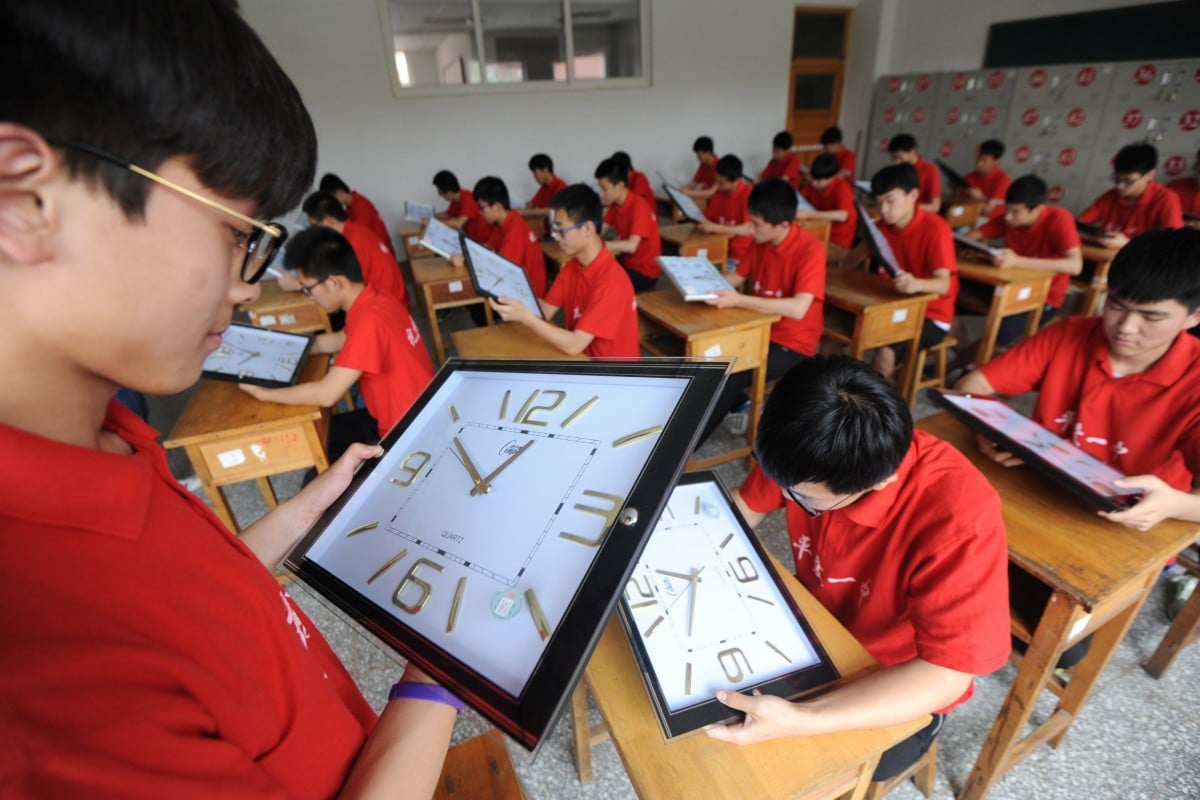
Don’t follow Trump – affirmative action can help ease Hong Kong’s education woes
Concessions for students from underprivileged families can have a knock-on effect and help break the cycle of poverty
 Staff members at a school in Qingdao, Shandong province prepare for the Gaokao. Ethic minority students on the mainland get more points at the university entrance exam.
Staff members at a school in Qingdao, Shandong province prepare for the Gaokao. Ethic minority students on the mainland get more points at the university entrance exam. In its latest blunder, the Trump administration has decided to turn its prosecutors against universities that run affirmative action admissions policies designed to support minority groups. But despite conservative claims that such policies are inherently unmeritocratic and hurt those who “deserve” a place in a top institution, affirmative action allows talented students from underprivileged classes to be more easily discovered and employed while alleviating socio-economic inequalities in the process.
We should not only support the retention of affirmative action admissions policies in the US, but also call for a limited implementation of such a scheme in Hong Kong.
Affirmative action admissions policies often take the form of quotas or reduced entry requirements for students from poor families or minority ethnic groups. In China, members of the 55 non-Han ethnic minorities receive a boost of 10 to 20 points in the Gaokao, or university entrance examination. This helps such students enter a prestigious university, and gain the skills needed to find better jobs. At the same time, having a successful career means that they would be able to raise better-educated children. This is one way to break the cycle of poverty.
While critics argue that these policies are unfair because the students “haven’t worked” for the points they’ve gained, this completely ignores the barriers that hinder their chances of success. They don’t usually have parents who have the time or skills to help them with their studies. Their living conditions are also not very good. In addition, they cannot afford to hire private tutors or buy additional textbooks that could help them stay in touch with their classmates.
In Hong Kong, these problems are worsened by the direct subsidy scheme, which has put most “elite” schools out of the reach of grassroots families. It may well be the case that such students have worked just as hard as their privileged peers, if not more, but struggle to succeed due to discrimination and other problems.
Although granting concessions to the needy may seem unusual in Hong Kong’s capitalist society, such a policy should be considered in light of the never-ending income disparities and the near-impossible task of bringing all the city’s schools to the same standard.
Affirmative action is not without its flaws – the system can be abused and the stigma associated with the concessions will still exist – but it could be an answer to some of the city’s woes.
